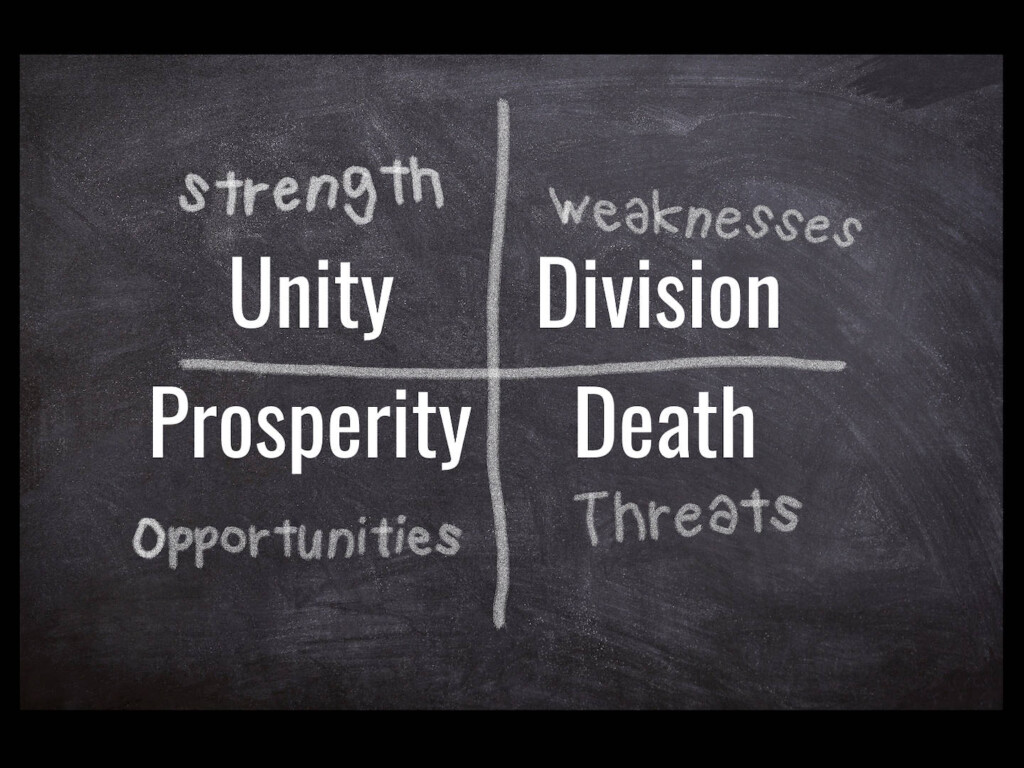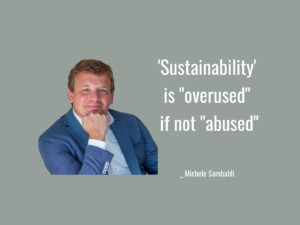‘Where responsibility meets opportunity’ is where tourism faces its threats

Pacific Asia Travel Association (PATA) Chair Peter Semone delivered an impassioned keynote address, October 4, on the eve of PATA Travel Mart 2023 in New Delhi, India.
This “Good Tourism” Insight version was published with Mr Semone’s blessing.
[You too can write a “GT” Insight.]
“GT” is attending PATA Travel Mart at the kind invitation of PATA and thanks to the generosity of the event hosts, the Ministry of Tourism, Government of India.
Two existential threats
As we gather here in New Delhi for the PATA Travel Mart 2023, the world is entering a critical time. We are living in a time where opportunities are boundless.
However, the risk of devastating crises that can destabilise global well-being is at an all-time high. I don’t have to remind you of the pain that we experienced with COVID across the globe.
The reality is that humankind is facing two existential threats that have the potential to devastate the travel & tourism industry. These two crises, if they escalate any further, will make COVID pale in comparison.
I refer to:
- Climate change
- Geopolitical and social unrest
Think about it. Without nature there is no tourism. And without peace there is no tourism. And a world without tourism is a place with a lot fewer jobs and less robust economies, particularly in developing countries.
Without tourism, the prospects of achieving the Sustainable Development Goals would be even more challenging than it already is. In seven-and-a-half years (half the time of implementation), we have only achieved 18%.
You might say: “No big deal.” “Not my problem.” “There are other people that deal with implementing the SDGs.” “Not in my wheelhouse.” “Not my responsibility.”
Well according to the United Nations, failure to achieve the SDGs may fuel greater political instability, upend economies, and lead to irreversible damage to the natural environment. If that happens, tourism will be decimated.
The imperative of our time
Sustainability is not merely a buzzword; it is the imperative of our time. It is the bridge that connects our ethical obligations to the vast opportunities that lie ahead.
By embracing sustainability, we can drive economic growth, foster innovation, and create prosperity for all.
It is no longer a question of whether sustainability is good for business, it is a question of how we can integrate sustainability into the very core of our business models and practices. It is each of our responsibility, our moral obligation, to recognise the consequences of our choices and to act accordingly.
Don’t miss other “GT” content tagged ‘Sustainable tourism’
Jamaica’s Minister of Tourism HE Edmund Bartlett suggests that it is time that we take personal responsibility for ensuring a sustainable future for us, our children, our grandchildren, and generations to come. Minister Bartlett and leaders of the many other so-called Small Island Developing States are acutely aware of the damage climate change is already bringing to island communities.
Personal responsibility is when you take full accountability for your actions and decisions, and hold yourself responsible. It leaves little room for the blame games and finger-pointing. Personal responsibility is when you develop better control of your life and are more self-aware.
In the spirit of personal responsibility, each and every one of us can mitigate the twin crises of climate change and geopolitical and social unrest. As members of the Pacific Asia travel & tourism community, we can each be a catalyst for change.
The Pacific Asia region is like a living museum with an emporium of natural and cultural assets unlike any other place on Earth. PATA is serious about protecting the region that 4.3 billion people — 60% of the world’s population — call home.
A catalyst for change and a bridge between nations
It seems that world tourism leaders and United Nations officials have woken up, smelled the coffee, and agreed to do something to mitigate our two looming man-made crises (climate change and social and geopolitical unrest).
I’m happy to see that these existential threats to global tourism (and to mankind) are being spoken about at very high levels of government.
Last week, the Ministry of Tourism of Saudi Arabia invited PATA to participate in the UN World Tourism Organization’s World Tourism Day official celebrations in Riyadh, Saudi Arabia. This saw the attendance of some 500 public and private sector leaders, including 50 ministers of tourism, from 120 countries, including HE Shri G Kishan Reddy, Minister of Tourism, Government of India.
Minister of Tourism of Saudi Arabia, Ahmed Al-Khateeb, said: “We have a historic opportunity to chart a new course for the global tourism sector, centred on sustainable development, job creation, and economic resilience.
“Tourism, as a catalyst for change, fosters mutual understanding, builds bridges and safeguards cultural heritage and environmental conservation, contributing to a more harmonious world.”
An Israeli delegation attended the event; a sign that the travel industry can thaw frosty relations between nations.
Don’t miss other “GT” content tagged ‘Peace through tourism’
Israel’s Minister of Tourism HE Haim Katz said: “Tourism is a bridge between nations [and] tourism cooperation has the potential to bring us closer together and herald economic flourishing.”
Last week, from Riyadh, a resounding call to action reverberated through the global tourism industry, urging us to prioritise people, planet, and prosperity. This call is essential to foster mutual understanding, secure economic sustainability, and promote social prosperity.
In our pursuit of a thriving tourism sector, we must unite in our commitment to invest in people through education, our planet through sustainable infrastructure, and our prosperity through technology and entrepreneurship.
Today, as the Chairman of PATA, I echo this clarion call right here in New Delhi, emphasising the significance of “Five Ps” in which I include Partnership and Peace.
- People
- Planet
- Prosperity
- Partnership
- Peace
2026, the Year of Peace Tourism
I would like to pronounce 2026 as the Year of Peace Tourism on the occasion of the 75th anniversary of PATA.
Let’s make tourism part of the solution on 21 September 2026, World Peace Day.
Perhaps PATA can partner with our members and the United Nations Alliance of Civilizations (UNAOC) to organise an event aimed at reducing cross-cultural tensions and building bridges between communities globally.
We already know that:
- Tourism is a catalyst for intercultural dialogue;
- Tourism fosters mutual understanding and builds bridges between nations, faiths, and ethnicities;
- Tourism unites people;
- Tourism inspires imaginations of possibilities for a shared future, and;
- Tourism breaks down barriers.
Embrace a holistic approach
As we envision a sustainable future, it’s imperative that we embrace a holistic approach. First and foremost, we must recognise that local people and communities serve as the bedrock upon which our sustainable journey is built, with economic, cultural, and environmental pillars forming its foundation.
Our commitment to the environment is paramount in the face of challenges like climate change and pollution. We must bolster our efforts through dedicated institutions to ensure resilience within our plans and to prepare the entire ecosystem to withstand unforeseen shocks.
It’s a delicate balance we strive for: Economic growth harmonised with environmental protection, safeguarding our social infrastructure and institutions.
Sustainability is the interconnected tapestry that binds governments, businesses, and communities. We must remember that sustainability is not merely a concept but a way of life, woven into the very DNA of our thoughts and actions, shaping the path to a brighter, more sustainable future for all.
If we are going to save tourism we need to lessen tourism’s footprint on Mother Earth. We need to better understand the invisible burden of tourism. We need to safeguard our cultural heritage in partnership with global organisations such as UNESCO.
And we need to be far more assertive in operationalising basic environmentally-friendly environmental conservation standards. (Sadly, only 26.3% of accommodations globally have climate action plans.)
Think reuse, reduce, and recycle. Think circular economies.
Make it your personal responsibility to take care of our planet. Think about how you can champion sustainability in terms of climate, nature, economy and community.
India’s example
Let us take a moment to acknowledge India’s exemplary role in this journey.
The world’s largest democracy has been a torchbearer in sustainability, recognising the pressing environmental challenges and stepping up to address them.
India has embarked on a path of sustainable development, showcasing initiatives that span renewable energy, biodiversity conservation, waste management, and much more.
India’s commitment to sustainability serves as a testament to what can be achieved when a nation embraces its responsibility and seizes the opportunities it presents.
However, sustainability is not the responsibility of one nation, one industry, or one individual. It is a collective endeavour.
Sustainability is about recognising that we are all interconnected, that the actions of one affect the livelihoods of many. It is about realising that our choices, whether as consumers, business leaders, or policymakers, have far-reaching consequences. It is about understanding that we hold the power to drive change.
United we stand. Divided we fall
In “The Four Oxen and the Lion”, the Greek Philosopher Aesop tells of a powerful lion who prowls a field in search of a hearty meal.
The four oxen who live there stand tail to tail and offer the lion horns regardless of the direction of the approach. Collectively they face their greatest threat.
One day, however, an argument causes the four oxen to go their separate ways. On their own the oxen do not stand a chance against the lion, who picks them off one by one with great ease.
The moral of the story: United we stand. Divided we fall.
Don’t miss other “GT” Insights by Peter Semone
So, as we embark on this journey together, let us remember that responsibility and opportunity are not opposing forces but two sides of the same coin.
Let us embrace the power of collective action and the potential for innovation that sustainability offers.
Let us stand up as responsible leaders and pave the way for a future where our actions today become the opportunities of tomorrow.
We have a historic opportunity to chart a new course for the Asia Pacific tourism sector, centred on sustainable development, job creation, and economic resilience.
Let’s do it together!
Agree? Disagree? Share a short anecdote or comment below. Or write a “GT” Insight of your own. The “Good Tourism” Blog welcomes diversity of opinion about travel & tourism because travel & tourism is everyone’s business.
Featured image (top of post): ‘Where responsibility meets opportunity’ is where tourism faces its threats. Chalkboard image by Adrian (CC0) via Pixabay.
About the author

Peter Semone is Chair of the Pacific Asia Travel Association (PATA), and Team Leader, Strategist and Institutional Specialist at the United Nations World Tourism Organization (UNWTO).





